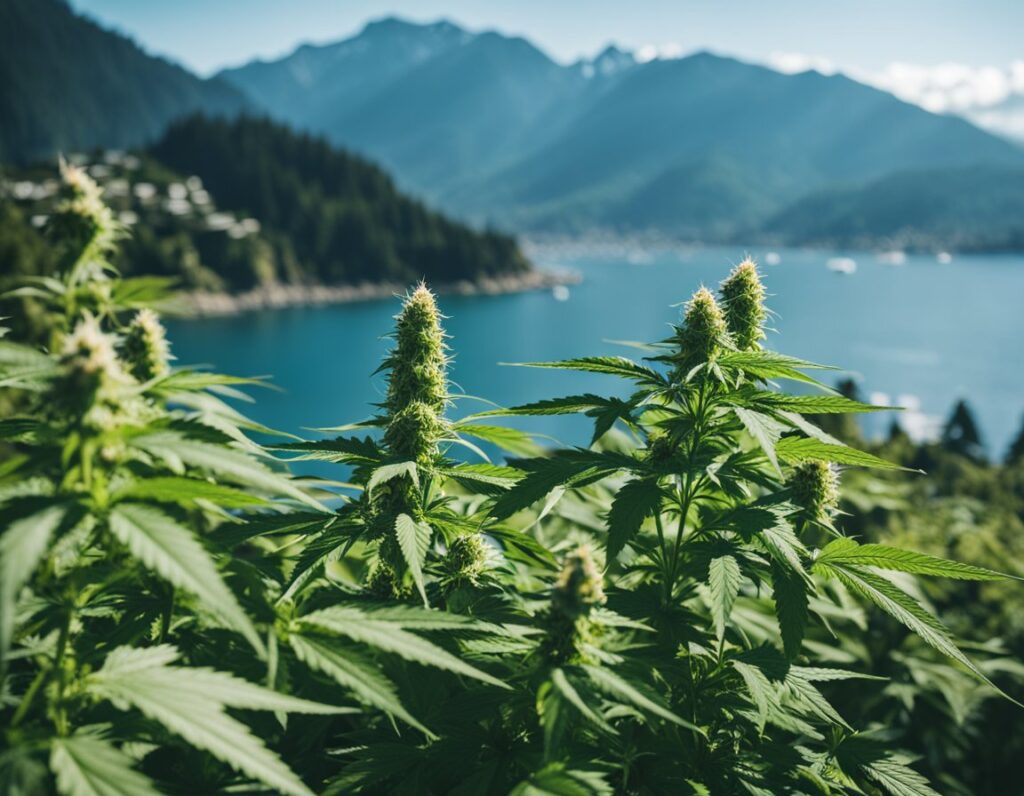
Vancouver’s climate plays a crucial role in cannabis cultivation, impacting growth patterns and yield potential. Understanding temperature variations, precipitation patterns, and sunlight availability is essential for successful growing strategies, especially for those looking into Marijuana Seeds Vancouver as a starting point.
Vancouver experiences a mild oceanic climate with moderate temperature variations. Summers can reach daytime highs of around 22-30°C (72-86°F), which are generally favorable for cannabis growth.
In contrast, winter temperatures may drop to about 1-5°C (34-41°F). While cannabis plants can tolerate cooler temperatures, prolonged exposure can hinder growth.
The transition periods of spring and fall also present variability, affecting seedling development and flowering. Growers must be mindful of the temperature fluctuations. Insulating greenhouses or using heating systems can mitigate cold spells, ensuring optimal growth conditions throughout the year. Considering Vancouver weather cannabis growth implications is key for a thriving harvest.
Vancouver receives considerable rainfall, averaging about 1,200 mm (47 inches) annually, concentrated mainly in the winter months. While this abundance can benefit cannabis during the growth phase, excessive moisture can lead to mold and root rot issues.
The drier summer months generally see lower precipitation, creating ideal conditions for outdoor cultivation. A well-drained soil mix can help manage excess water. Understanding local weather forecasts will assist in planning irrigation schedules and ensure plants receive adequate hydration without the risk of overwatering.
Sunlight is critical for healthy cannabis growth, as it directly influences photosynthesis. In Vancouver, daylight hours vary significantly with the seasons.
During summer, you can expect up to 16 hours of daylight, providing ample energy for plant development. In late fall and winter, daylight hours decrease to about 8-9 hours, which can slow growth.
Cultivators should consider using supplemental lighting indoors or in greenhouses during shorter days to maintain consistent growth rates. Proper light exposure enhances cannabinoid production and overall plant health, which is essential for successful cultivation.
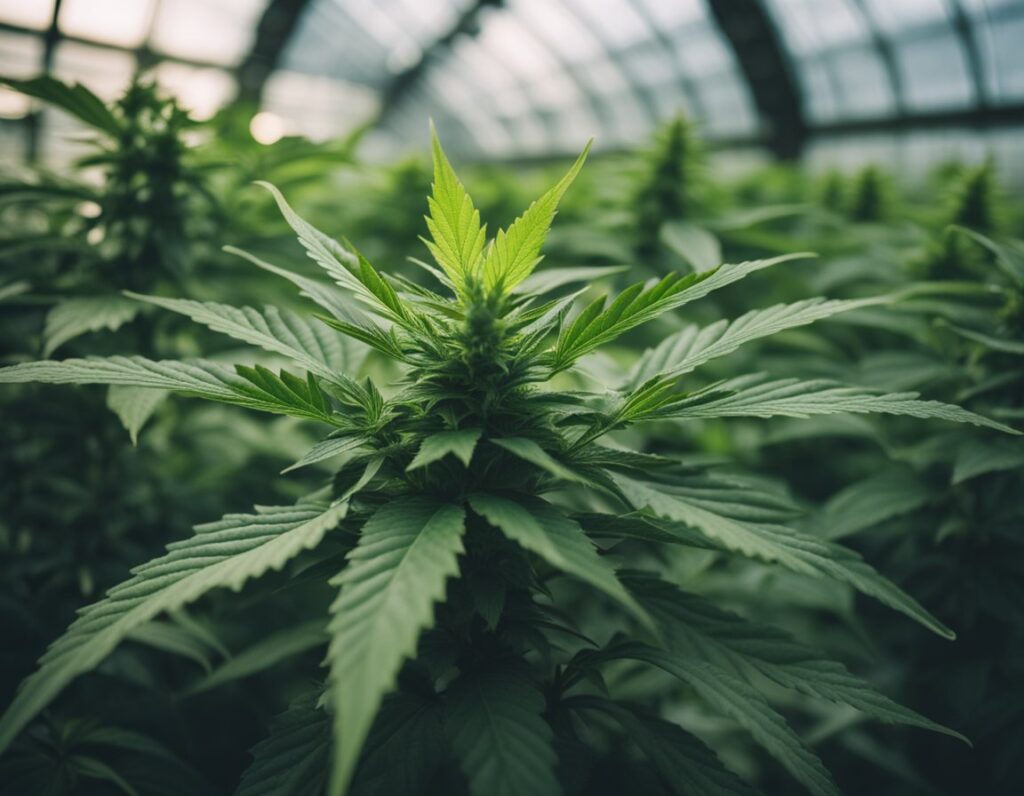
Vancouver’s unique climate presents specific cultivation techniques that can maximize the growth and quality of cannabis. Understanding both indoor and outdoor methods will help you make informed decisions for successful cultivation.
Indoor cultivation allows for precise control over environmental factors such as temperature, humidity, and light. This control minimizes risks from pests and diseases, which are more prevalent outdoors.
By using hydroponics or aeroponics, you can optimize nutrient absorption and enhance growth rates. These systems often lead to higher cannabinoid concentrations, including THC and CBD, meeting consumer demands for potency and quality.
Furthermore, indoor setups can facilitate year-round growing cycles. You have the flexibility to use advanced lighting systems like LED or HPS, which can significantly increase yield while reducing energy consumption. This efficiency is particularly beneficial in Vancouver’s variable climate.
Outdoor cannabis farming in Vancouver faces distinct climate challenges, including fluctuating temperatures and high humidity levels. These conditions can lead to mold and mildew, impacting plant health and yield.
The coastal climate also brings unpredictable weather patterns, creating risks during critical growth stages. You may encounter heavy rains or windstorms that can damage plants and reduce harvest quality.
Selecting suitable strains is essential for outdoor cultivation. Look for those that are resilient to mold and suited for cooler temperatures. Employing protective measures such as row covers or greenhouses can help mitigate outdoor risks.
Understanding these challenges will help you develop strategies to navigate Vancouver’s unique environment effectively.
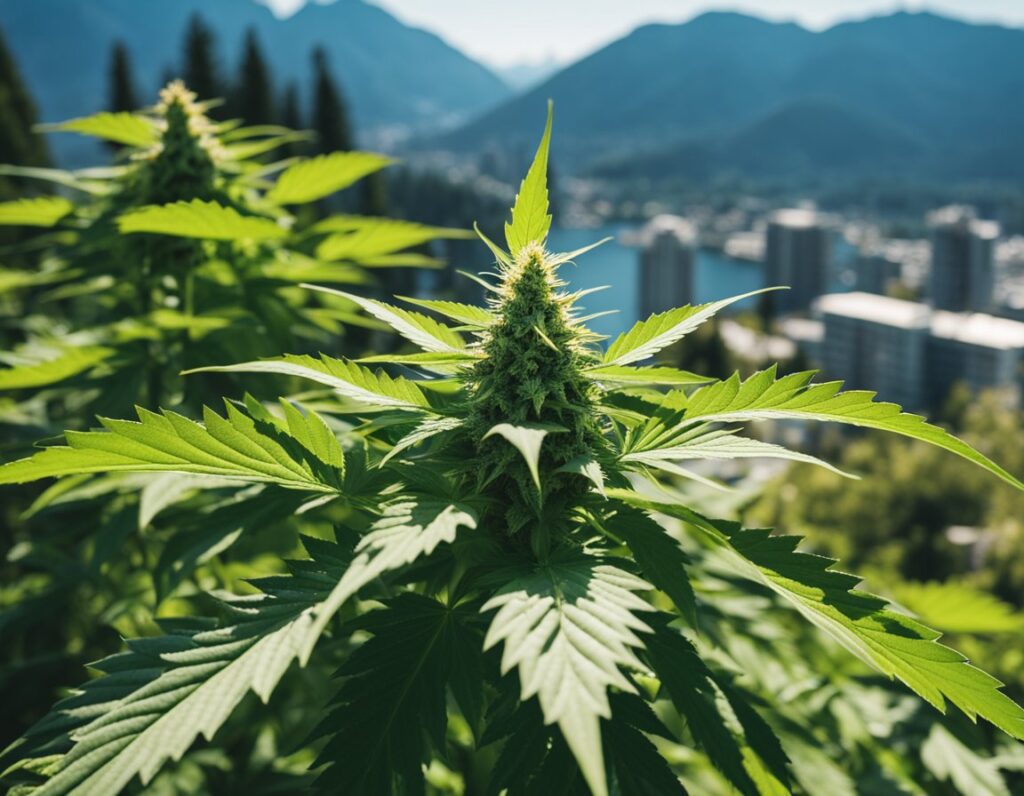
The legal landscape for cannabis in Vancouver has transformed significantly since legalization, bringing new regulations and a sense of community engagement. Understanding this framework is crucial for those involved in or affected by the cannabis industry.
Cannabis was legalized in Canada on October 17, 2018, with British Columbia adopting specific measures under the Cannabis Act. This law established a regulated framework for the production, distribution, and sale of cannabis. In British Columbia, the legal age for purchasing cannabis is set at 19 years, aligning with provincial alcohol regulations.
Municipalities can create their own bylaws, influencing where cannabis businesses can operate. Vancouver’s local regulations include zoning laws, which dictate areas for dispensaries and cultivation sites, ensuring fewer conflicts with residential areas. As a result, there has been a diversification in the industry, promoting both local businesses and growth in the economy.
Regulatory compliance plays a crucial role in the cannabis industry framework. Government bodies oversee these regulations to ensure producers adhere to strict cultivation guidelines, including pesticide use, testing for contaminants, and packaging requirements.The Cannabis Act mandates clear labeling, helping consumers make informed choices about the products they purchase. Additionally, local governments may implement further regulations tailored to community needs, focusing on responsible consumption and awareness within the industry.These regulations ensure a transparent and accountable market for both producers and consumers, supporting industry standards and community expectations.
The legalization of cannabis has fostered significant cultural shifts within Vancouver. You may find that community attitudes toward cannabis have evolved, moving from stigma to acceptance. Events celebrating cannabis culture, educational workshops, and support for local growers have contributed to a thriving community spirit.
Community organizations often engage in dialogues about responsible cannabis use and equity in the cannabis market. Furthermore, local initiatives aim to address the historical impacts of prohibition, creating an inclusive environment for diverse voices within the industry. This commitment to community enrichment fosters collaboration between businesses and residents, ensuring that cannabis culture aligns with local values and public welfare.
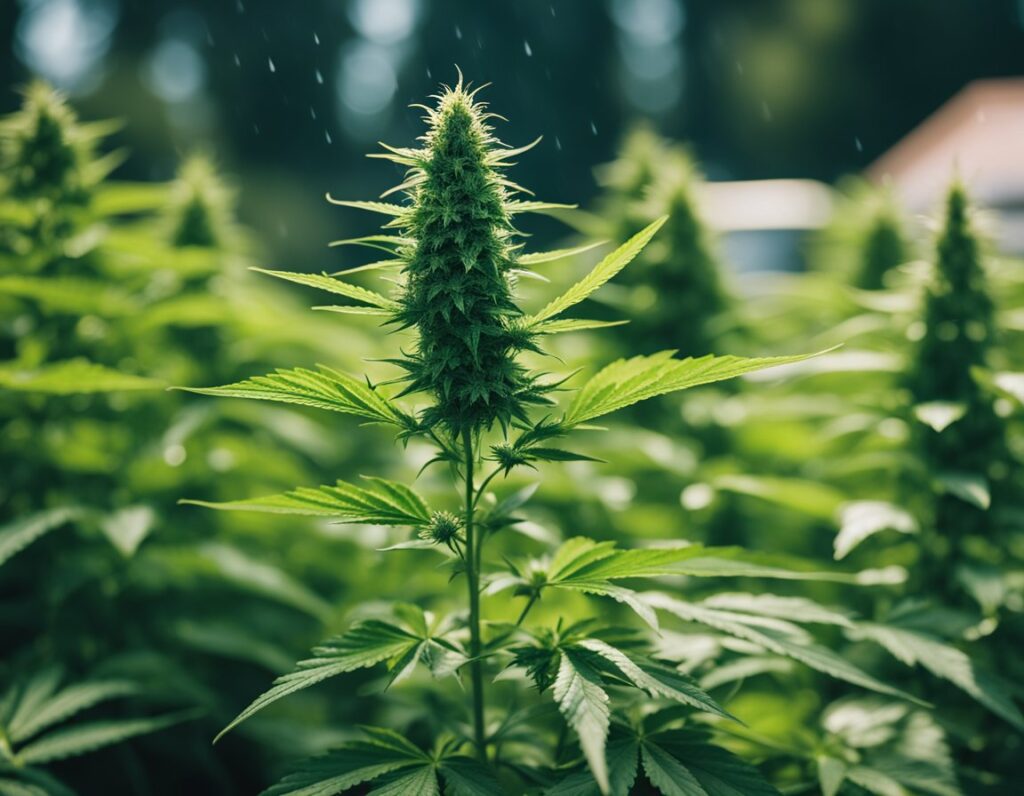
The cannabis economy in Vancouver is multifaceted, involving the legal market, the persistent illicit trade, and diverse distribution networks. Understanding these dynamics offers insight into the region’s economic landscape.
Vancouver’s legal cannabis market has evolved significantly since the legalization of recreational use in 2018. A report indicates that cannabis has contributed $43.5 billion to Canada’s GDP. Vancouver’s segment is characterized by regulated dispensaries offering a variety of products.
You can find both storefronts and online options catering to consumer preferences. The legal framework encourages competition and enhances consumer choice, thereby fostering a healthier market. Local businesses are also adapting to customer demands through innovative delivery services, further expanding access.
While the legal market grows, the illicit market remains influential. Many consumers still seek products outside the regulated frameworks due to price and accessibility. Reports suggest that illicit sales continue to exist despite the legalization efforts, indicating that the black market is resilient.
This ongoing competition impacts pricing strategies in legal dispensaries, often leading to lower prices. The illicit market’s persistence also poses challenges for law enforcement and regulatory bodies aiming to promote safe consumption practices among users.
Dispensaries in Vancouver serve as critical nodes in the cannabis supply chain, integrating production and consumer access. Local stores often collaborate with growers to ensure product quality and variety, offering everything from flowers to edibles.
Many dispensaries are enhancing their services with weed delivery options, making it easier for consumers to access products efficiently. This convenience is appealing, particularly in urban settings, where busy lifestyles drive demand for quicker access.
The growth of online platforms and delivery services complements traditional retail by reaching consumers who prefer shopping from home. This interconnected distribution model is a vital aspect of Vancouver’s evolving cannabis economy.
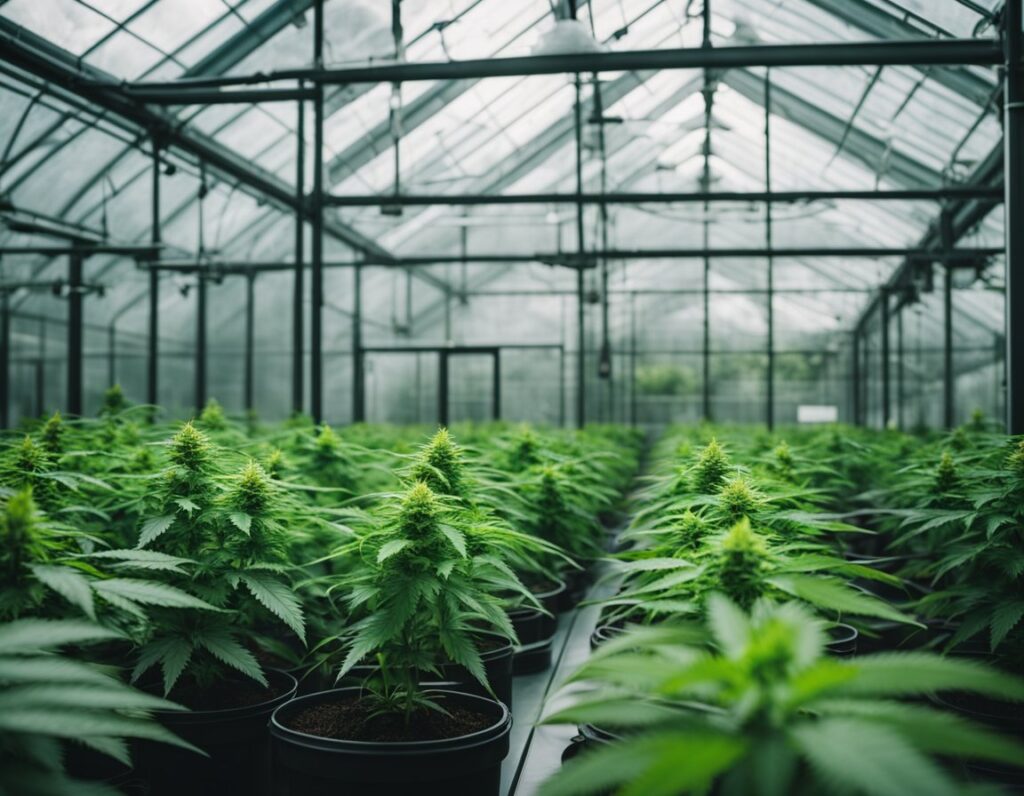
Understanding consumption practices is essential for anyone involved with cannabis in Vancouver. This includes strategies for reducing risks and ensuring responsible recreational use.
These practices support a more mindful and enjoyable cannabis experience, allowing users to make informed decisions based on their needs.
Recreational cannabis use offers various experiences depending on the strain, form, and dosage. Understanding your preferences and how different products work can help create a more enjoyable and responsible experience.
Being mindful of your consumption choices promotes a balanced and responsible approach to recreational cannabis use.
Responsible consumption is essential for enhancing your recreational experience while ensuring safety. Key points include:
Practicing responsible consumption contributes to a positive experience for you and those around you.
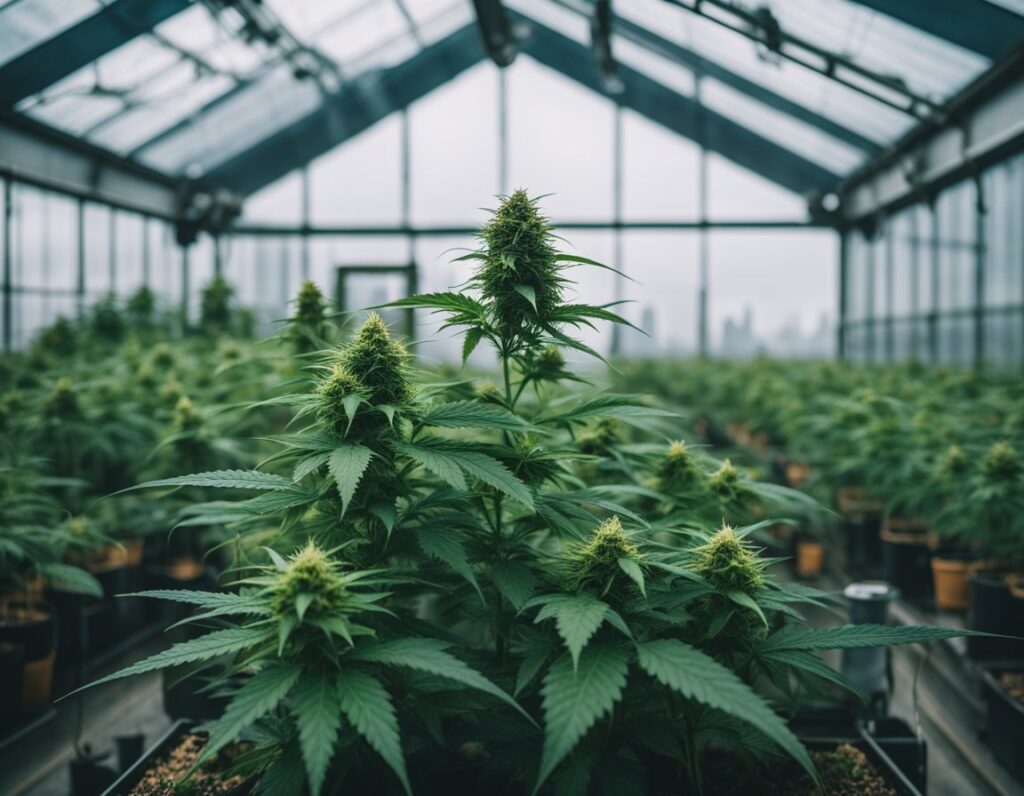
Vancouver’s unique climate offers both opportunities and challenges for cannabis growth. Educational institutions and research initiatives are playing key roles in exploring these dynamics, providing valuable knowledge for growers and policymakers.
The University of British Columbia (UBC) is at the forefront of cannabis research in Vancouver. Various departments collaborate on studies that dissect how environmental factors impact cannabis cultivation.
Specific projects evaluate soil quality, water usage, and the effects of local weather patterns on crop yields.
Additionally, UBC offers courses on cannabis cultivation, integrating scientific standards with agricultural practices. Students are encouraged to engage in hands-on experiences, enhancing their understanding of sustainable cultivation methods that can adapt to Vancouver’s climate.
Public policy and environmental studies focus on the relationship between cannabis cultivation and community well-being. Research investigates the environmental impacts of cannabis production, emphasizing the importance of air and water quality in regions with significant cultivation activities.Studies also address how cannabis facilities affect urban areas, particularly in neighborhoods with higher concentrations of production sites. Data-driven approaches help policymakers establish regulations that minimize negative environmental or community impacts.These studies contribute to informed policy decisions and effective communication, helping communities understand the broader implications of the local cannabis industry on their surroundings and infrastructure.
This section addresses common inquiries regarding the challenges and best practices for cannabis cultivation in Vancouver’s unique weather conditions. Understanding these aspects will help you optimize your growing experience.
Vancouver experiences significant rainfall, especially during the fall and winter months. Excess moisture can lead to mold and mildew, affecting plant health. Implementing proper drainage and choosing resistant strains can mitigate these risks.
A greenhouse should be equipped with adequate ventilation and humidity control to counteract Vancouver’s damp conditions. Using supplemental lighting during shorter days can also enhance growth and yield throughout the growing season.
Cannabis cultivation in Vancouver is generally seasonal, with the best outdoor growing months being May to October. The cooler temperatures and potential frost in fall limit viable cultivation periods.
Strains like Northern Lights, Durban Poison, Frisian Dew, and Blueberry thrive in Vancouver’s humid climate. These strains are more resistant to mold and mildew, making them suitable choices for outdoor cultivation.
Temperature fluctuations can significantly affect the flowering stage of cannabis. Ideally, the temperature should remain between 65°F to 80°F, as extreme heat or cold can stress plants and inhibit bud formation.
We ship and deliver world wide via USPS and various couriers.
We offer a wide range of secure and anonymous online payment options.
We care about you, our customer. Please contact us with any questions or concerns.
Find out more about the benefits of being a loyal and regular customer.
WE ARE EVERY GROWERS ONE STOP SHOP TO ACQUIRE PREMIUM CANNABIS SEEDS FOR SALE IN THE USA, CANADA AND AUSTRALIA

Farmers Lab Seeds 2024, | All Right Reserved
Seeds are sold as novelty items, souvenirs, and collectibles. They contain 0% THC. We encourage our customers to check the legislation in their Country, State, Province, and Municipality prior to purchasing items from our store. We do not provide growing information.
All seeds are sold as hemp, and lab tested under 0.3% THC. This product is not for use by or sale to persons under the age of 21. This product should be used only as directed on the label. It should not be used if you are pregnant or nursing. Consult with a physician before use if you have a serious medical condition or use prescription medications. A Doctor’s advice should be sought before using this and any supplemental dietary product. All trademarks and copyrights are property of their respective owners and are not affiliated with nor do they endorse this product.
These statements have not been evaluated by the FDA. This product is not intended to diagnose, treat, cure or prevent any disease. Individual weight loss results will vary. By using this site, you agree to follow the Privacy Policy and all Terms & Conditions printed on this site. Void Where Prohibited by Law.